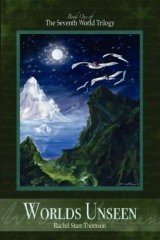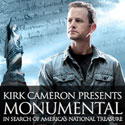“Education is not the filling of a bucket, but the lighting of a fire.”
~~ W. B. Yeats
At my house, we love to have long conversations. I say conversations. Sometimes they turn into monologues, but that’s okay, because we’re learning. I’m talking about when we get my mom going on a topic, whether it’s the economy or parenting or college or relationships. She engages us by asking for our feedback, our opinions about what she’s saying, but my siblings and I are inclined to sit quiet and soak in what she’s saying. It may be a few days (or years) before some of us fully digest what she has told us, but this is one of my favorite ways to learn (some of this stuff you can’t learn from a book because Mom hasn’t had time to write it yet!).
 In one of our recent conversations, she made mention that the current educational model is one that compares children to a bucket that needs to be filled. The idea is that if you fill the bucket with enough stuff (knowledge), the child will turn out a good citizen, equipped for life. As you’ve probably guessed, we aren’t on that bandwagon.
In one of our recent conversations, she made mention that the current educational model is one that compares children to a bucket that needs to be filled. The idea is that if you fill the bucket with enough stuff (knowledge), the child will turn out a good citizen, equipped for life. As you’ve probably guessed, we aren’t on that bandwagon.
We take the approach that information is not enough. Computers have a lot of information, but without any directions, that data does no one much good. You can know who fought at Gettysburg, know where Tanzania is, know the periodic table backwards and forwards, know why the Pythagorean Theorem works, but is that enough to say you’re a good citizen? Does a child really know what to do with all that when they graduate? Can they turn that into how to get a job, how to buy a house, how to choose a spouse, how to raise children, how to do your taxes, how to manage your money, how to cook, in short, how to be an adult.
I’m afraid that the bucket theory does not seem to be working. Look at the drop out rate. Look at the illiteracy rate. Look at the number of people with credit card debt, and the amounts they owe. Learning just because it’s mandatory does not seem to inspire children. Even kids with parents who insist they get good grades, well, it’s possible to skate through and get good grades without learning anything. My parents knew kids who did that, and that’s some time ago. The situation has not been getting better, to judge from people I know and things I’ve heard.
 So what’s our educational model? We like to think of it as lighting a fire. Mom has always tried to teach us to love learning. We enjoy school time. My youngest brothers couldn’t wait to start school, and they didn’t want to stop for their first summer vacation. We’ve never dreaded starting school in the fall. We’re usually ready for a short break by Christmas time, but that’s partly because we’ve just been doing double time working on school and our Christmas gifts, which are, with one or two exceptions in recent years, handmade.
So what’s our educational model? We like to think of it as lighting a fire. Mom has always tried to teach us to love learning. We enjoy school time. My youngest brothers couldn’t wait to start school, and they didn’t want to stop for their first summer vacation. We’ve never dreaded starting school in the fall. We’re usually ready for a short break by Christmas time, but that’s partly because we’ve just been doing double time working on school and our Christmas gifts, which are, with one or two exceptions in recent years, handmade.
Mom has worked hard to light our fires so that we will want to learn. Learning is not only fun, it’s relevant, and it’s important. We know why we are learning what we learn, and it’s not just because Mom says so. She has a good reason for every subject that we learn. This means that sometimes our curriculum has not been the same. There are subjects that I covered with one textbook, but which 3G or Sister did a different way.
If there is something we don’t have an answer to, my siblings and I have learned to go find out. We are mongooses, to reference Rudyard Kipling’s Ricki-ticki-tavi, who always had to “go and find out.” We don’t claim to have all the answers, but we do generally know where to locate the answers. We are self-motivated learners. We will learn for learning’s sake.
This has stood me in good stead as I do college online. I have to be very self-motivated to get my school work done on time. I know my best studying times, and I can manage my time accordingly. 3G has also been able to benefit from being a fire. He studied several subjects on his own (particularly electrical circuits) which have helped him in his first year of course work. He has been able to make the transition to college level work without loosing stride.
I like Yeats’ comparison of education to the lighting of a fire. A bucket sits there inert until something acts on it. A fire spreads, eating up everything in its path. In the same way, we should be learning all the time, learning all we can about everything we can, ingesting every piece of information and storing it where we can use it later. That’s what homeschooling is all about. That’s my educational model.
Once a child has a desire to learn, it becomes much easier to teach him. You can scream and cry all day, but a particularly stubborn child will not write their essay on China. A teenager who has no drive to know will be more easily discouraged when the going gets tough in Algebra, Geometry, or Trig. A student motivated solely by grades may do the work, pass the tests, and two months later may not be able to tell you what they (supposedly) learned.
When you teach a child to love learning, that child can become a lifelong learner. These are the people who make good citizens. Lifelong learners go and find out when they don’t have an answer about something, from deciding on a presidential candidate to buying soap. Lifelong learners are people like Benjamin Franklin, Thomas Jefferson, Nathaniel Bowditch, Thomas Edison, and George Washington Carver. These men helped shape our nation, helped make it safer, helped feed it, and helped inspire it to greater heights.
Our nation today is full of buckets, some full, some empty, many with leaks, almost all inert, just waiting (who knows for what).
Imagine what America could be like if we were educating a nation of little fires, ready to learn.
Thanks, Mom, for lighting my fire.






What You are Saying